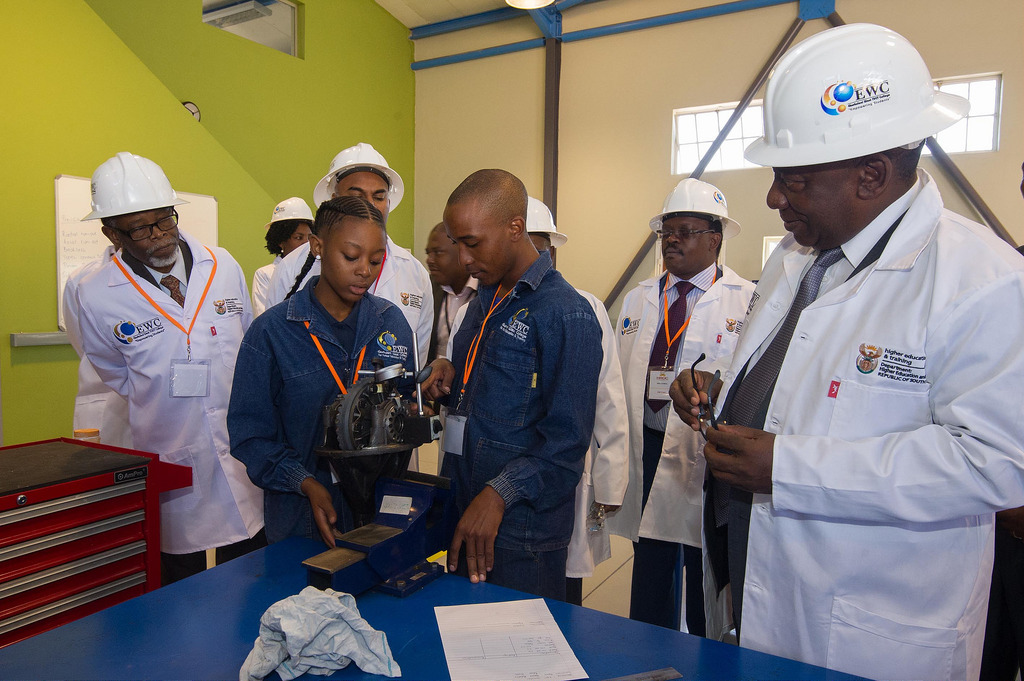Looking at the results by the Progress in International Reading Literacy Study (PIRLS) and Trends in International Mathematics and Science Study, which were released in 2015, shows that the quality of our basic education is poor, writes SAKHIWE KOKELA.
The results show that South African learners performed below average in these international benchmarking tests. For example, out of 50 countries that participated in PIRLS, South Africa ranked among the poorest performing.
Since 1994, each successive education policy such as the Outcomes Based Education, National Curriculum Statements and Revised National Curriculum Statement, failed to achieve the expected outcomes. For example, learners who received good results in the school leaving examinations of the Department of Basic Education’s NSC did not replicate such performance in international bench-marking tests, nor did they perform as well in universities or in relation to the demands of employers in the job market.
The main problem hampering South Africa’s progress in reaching its education goals is its inability to deal with the implementation of the department of basic education’s policy. Currently, it is important to strategically focus on improving the implementation of the latest policy known as the Curriculum and Assessment Policy Statements (CAPS), in order to improve learner performance and realise the Department of Basic Education’s vision in relation to the country’s development goals.
The ‘Implementation Evaluation of the National Curriculum Statement Grade R to 12 Focusing on the Curriculum and Assessment Policy Statements (CAPS)’ report from May 2017, and my own graduate research (‘An analysis of the implementation of the Curriculum and Assessment Policy Statement in the Further Education and Training Phase’, January 2017) present findings on the context of CAPS implementation.
The findings assist in understanding the CAPS implementation gaps. For example it reveals that in 18 of 24 schools in the study time management was poor. School timetables correspond, on paper, with CAPS requirements, but in reality teachers do not consistently attend to their duties in classrooms. Additionally, there are still material shortages, such as textbooks and calculators for Mathematics. Besides, there is still shortage of learning tools such as textbooks for mathematics and calculators.
Furthermore, there is a lack of clarity in many schools about the use of assessments to improve teaching and learning. Literacy is an additional problem because a substantial proportion of learners cannot read with understanding in any language, and writing skills are underdeveloped because of inadequate instruction. Too often district officials are blamed for not providing better instructional leadership. Teachers also do not ensure learner understanding of subject content and concepts.
Johannesburg Teachers Tired Of ‘Cash For Post’ Corruption
These materials shortages and competence gaps are costly.
Practices linked with teacher incompetence include inadequate attendance to their duties among subject advisors and other DBE officials, poor administrative leadership in the department, and the provision of teaching posts in corrupt processes rather than on merit.
One implementation gap which could be easily fixed at little or no additional cost would be to act against people in power acting inconsiderately in their job. Therefore government should initially act on such gaps. Unless these implementation gaps are fixed, the good intentions of CAPS will not be realised in the education system. These gaps have been present in all of South Africa’s post-1994 education policies.
Public officials’ skills should be supplemented with leadership skills and competency training which focuses on public service towards human development, thus establishing a more conducive environment for the successful implementation of the National Education Policy. Fixing the implementation gaps saves resources and improves the efficient and effective implementation of the Department of Basic Education’s policy. The quality of education would then improve. For example, if the implementation of CAPS is facilitated by employees with relevant expertise including leadership skills and personnel who are committed to implementing it accordingly, the implementation of CAPS would improve and the resources allocated for the implementation phase would then be used more efficiently.
If low or no additional cost implementation gaps persist under CAPS, it will experience inefficiency similar to previous basic education policies. Learners will continue to be subjected to inferior and poor quality education. The Department of Basic Education will continue to lose important resources because of those implementation gaps, not least because salaries will continue to be paid to officials who lack commitment, expertise, and leadership skills.
Sakhiwe Kokela is an Associate Researcher at the Auwal Socio-Economic Research Institute, but writes in her personal capacity.
The views expressed in this article are the author’s own and do not necessarily reflect the editorial policies of The Daily Vox.








